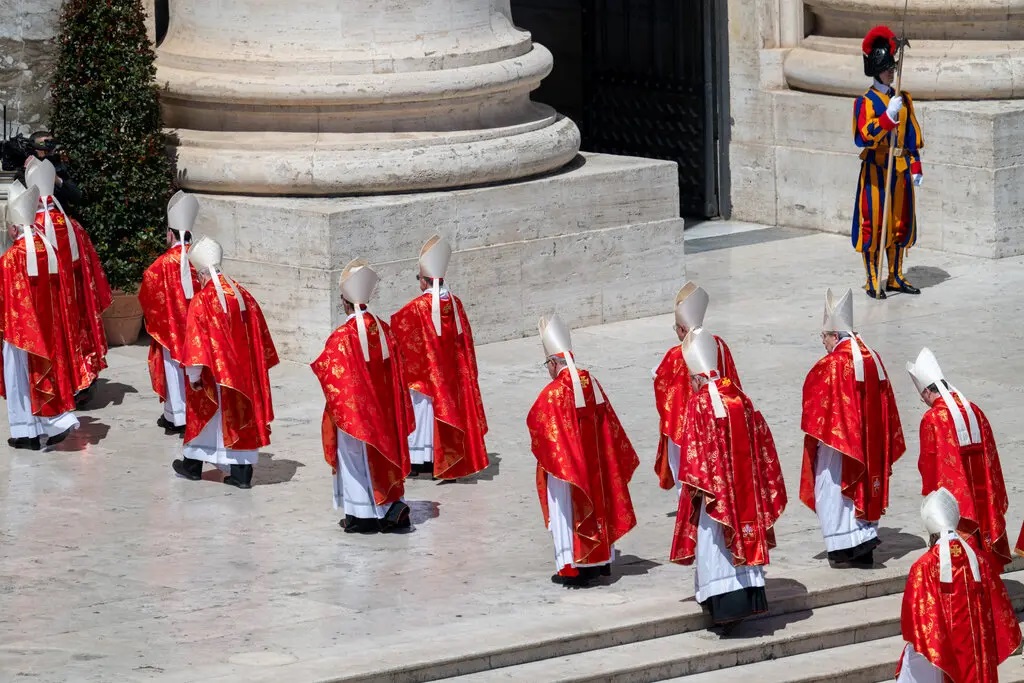News
Russia sending Nigerians, other African students to war for visa renewal – Report

By Francesca Hangeior.
Russia is allegedly sending thousands of migrants and foreign students to fight alongside its troops in the war against Ukraine for visa renewal, reports Bloomberg.
According to the Business news platform, the assessment was done by some European officials who alleged that the Kremlin is doing so to add extra manpower using the tactics first deployed by the Wagner mercenary group.
The report added that Russia has been threatening not to extend the visas of African students and young workers unless they agree to join the military, according to officials familiar with the matter.
Moscow has also been enlisting convicts from its prisons while some Africans in Russia on work visas have been detained and forced to decide between deportation or fighting, one European official said. Some of those people had been able to bribe officials to stay in the country and still avoid military service, said the official, who, like other people cited, spoke on condition of anonymity.
Russia’s practice of sending migrants and students into battle under duress dates back to earlier in the war, another European official said. Those troops suffer especially high casualty rates because they are increasingly deployed in risky offensive maneuvers to protect more highly trained units, the official added.
A spokeswoman for the Russian Foreign Ministry didn’t respond to an email seeking comment.
According to reports citing Ukrainian intelligence, Russia has engaged in a global recruitment drive to enlist foreign mercenaries in at least 21 countries, including several nations in Africa. Army recruitment campaigns offer lucrative signing bonuses and salaries for those who’ll join up as contract soldiers. Recruiters have also targeted migrants and students who previously looked for employment in Russia, and in some cases have lured others over with promises of lucrative work before forcing them to train and deploy to the front.
Russia’s ability to mobilize far greater numbers of troops could become a significant factor in the war as President Vladimir Putin seeks to capitalize on a shift in momentum this year.
For now though, his forces have been grinding forward only slowly in northeastern Ukraine and suffering heavy losses, despite a shortage of troops and ammunition on the Ukrainian side.
The Russian military lost more than 1,200 people a day during May, according to the UK Ministry of Defence, its highest casualty rate of the war. Since the beginning of the invasion, Russia has seen some 500,000 personnel killed or wounded, the UK estimates. Bloomberg is unable to independently verify these figures.
At a meeting with foreign media in St. Petersburg late Wednesday, Putin appeared to imply that about 10,000 Russian troops a month are being killed or wounded and that Ukrainian losses are five times higher.
While the Kremlin has failed to achieve a breakthrough on the battlefield, it has stepped up a bombing campaign against Kharkiv, Ukraine’s second-largest city. Western officials say those attacks appear designed to make the city uninhabitable.
News
Nigeria Felicitates with South Africa on 31st Freedom Day Anniversary

By Gloria Ikibah
Nigeria has congratulated South Africa on the celebration of its 31st Freedom Day anniversary, marking more than three decades since the end of apartheid rule.
This was contained in a statement issued by the Ministry of Foreign Affairs, on Sunday in Abuja, the Minister, Ambassador Yusuf Maitama Tuggar, extended warm greetings to his South African counterpart, His Excellency Ronald Lamola, Minister of International Relations and Cooperation.
Ambassador Tuggar described the day as a reminder of the historic victory of democracy over apartheid and a celebration of the resilient and unified spirit that continues to shape South Africa’s journey.
“Nigeria and South Africa share a profound bond forged through decades of solidarity in the liberation struggle. As we reflect on this milestone, we recall Nigeria’s unwavering support for the anti-apartheid movement, including diplomatic, material, and moral contributions that underscored our commitment to justice and the ethos of pan-Africanism,” the statement read.
Highlighting the strong bilateral ties between the two countries, Tuggar emphasized the shared responsibility Nigeria and South Africa have in promoting peace, security, and inclusive development across the African continent.
He noted that as Africa’s two largest economies and democracies, there is a need to strengthen collaboration in areas such as trade and investment through the African Continental Free Trade Area (AfCFTA), as well as cultural exchanges and youth empowerment.
“Therefore, on this Freedom Day, we stand with South Africa in honouring the sacrifices of heroes like Walter Sisulu, Nelson Mandela, Govan Mbeki, Thabo Mbeki and recommit to working together to realize the vision of a prosperous, peaceful, and united Africa,” he added.
News
Enugu Reps caucus backs concessioning of Enugu airport

The Enugu Caucus in the House of Representatives has thrown its weight behind the Federal Government’s plan to concession the Akanu Ibiam International Airport, Enugu, describing it as a potential catalyst for the Southeast economy.
The caucus commended the Federal Government for the initiative and urged it to hasten the process to enable the people of the Southeast and the nation to benefit from it in earnest.
It also called on the people of the region to support the concession as the only way to guarantee sustainable investment to fully develop the airport into a truly international facility.
News
Vatican: Conclave to elect a new pope will start on May 7

Cardinals will meet next month in a secret conclave to elect the next pope, the Vatican has said.
The closed-door meeting will start inside the Sistine Chapel on 7 May and will involve some 135 cardinals from across the world.
It follows the death of Pope Francis who died at the age of 88 on Easter Monday and whose funeral was held on Saturday.
There is no timescale as to how long it will take to elect the next pope, but the previous two conclaves, held in 2005 and 2013, lasted just two days.
Vatican spokesman Matteo Bruni said cardinals will take part in a solemn mass at St Peter’s Basilica, after which those eligible to vote will gather in the Sistine Chapel for the secretive ballot.
Once they enter the Sistine Chapel, cardinals must have no communication with the outside world until a new Pope is elected.
There is only one round of voting on the first afternoon of the conclave, but the cardinals will vote up to four times every day afterwards.
A new pope requires a two-thirds majority – and that can take time.
Each cardinal casts his vote on a simple card that says, in Latin: “I elect as Supreme Pontiff” to which they add the name of their chosen candidate.
If the conclave completes its third day without reaching a decision, the cardinals may pause for a day of prayer.
Outside the Sistine Chapel the world will be watching for the smoke from the chimney.
If the smoke is black, there will be another round of voting. White smoke signals that a new pope has been chosen.
On Saturday, politicians and royalty joined thousands of mourners as Pope Francis’ funeral was held in St Peter’s Square.
Hymns played out on giant speakers, occasionally drowned out by the sound of helicopters flying overhead, before 91-year-old Cardinal Giovanni Battista Re gave a homily on the pope’s legacy.
After a ceremony, huge crowds lined the streets of Rome to watch as the Pope’s coffin was carried in a procession to his final resting place, Santa Maria Maggiore Basilica.
Authorities said 140,000 people had lined the streets, clapping and waving as the hearse – a repurposed white popemobile – crossed the Tiber river and drove past some of Rome’s most recognisable sights: the Colosseum, the Forum and the Altare della Patria national monument on Piazza Venezia.
On Sunday images of Pope Francis’s tomb at the church were released showing a single white rose lying on the stone that bears the name he was known by during his pontificate, below a crucifix illuminated by a single spotlight.
-

 News11 hours ago
News11 hours agoJust in: Senator Natasha tenders satirical ‘apology’ to Akpabio
-

 News5 hours ago
News5 hours agoInsecurity: BUDA urges govt to quickly rescue Baruten from terrorists
-

 News7 hours ago
News7 hours agoUNUSUAL! Without invitation, Police declared me wanted — Daughter of ABC Transport owner
-

 News2 hours ago
News2 hours agoBreaking: Late gospel singer Osinachi’s husband sentenced to death by hanging
-

 News4 hours ago
News4 hours agoWeeks to 2nd anniversary, Niger deputy gov, plans to resign, move out personal effects
-

 News20 hours ago
News20 hours agoBenue LG chairman gives Fulanis 48hrs to leave all farmlands
-

 News20 hours ago
News20 hours agoFive suspected kidnappers eliminated by police in Delta
-

 Metro12 hours ago
Metro12 hours ago‘My husband always makes love throughout the night until morning’ – Woman Wants Divorce


















